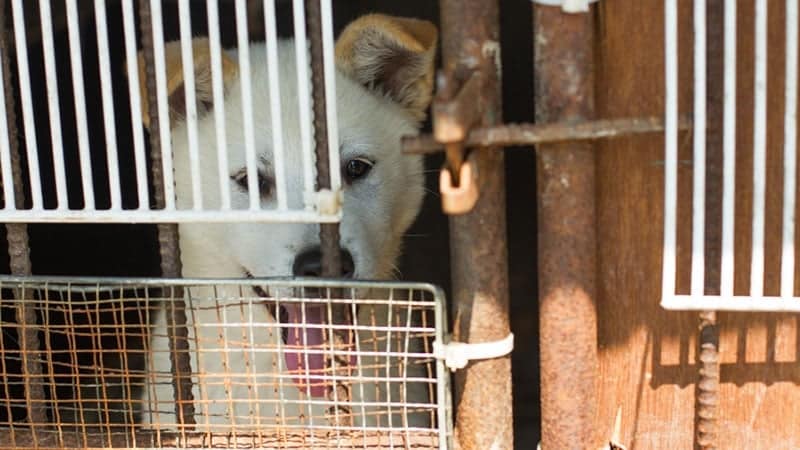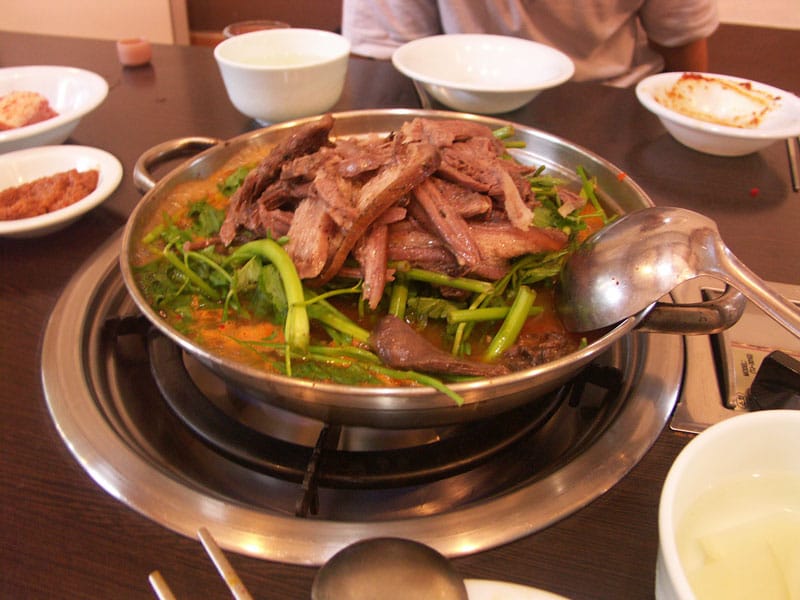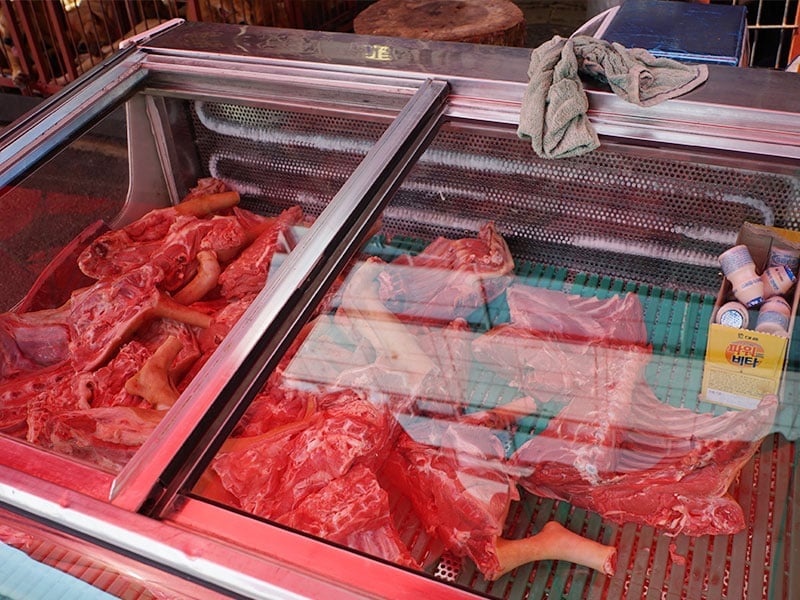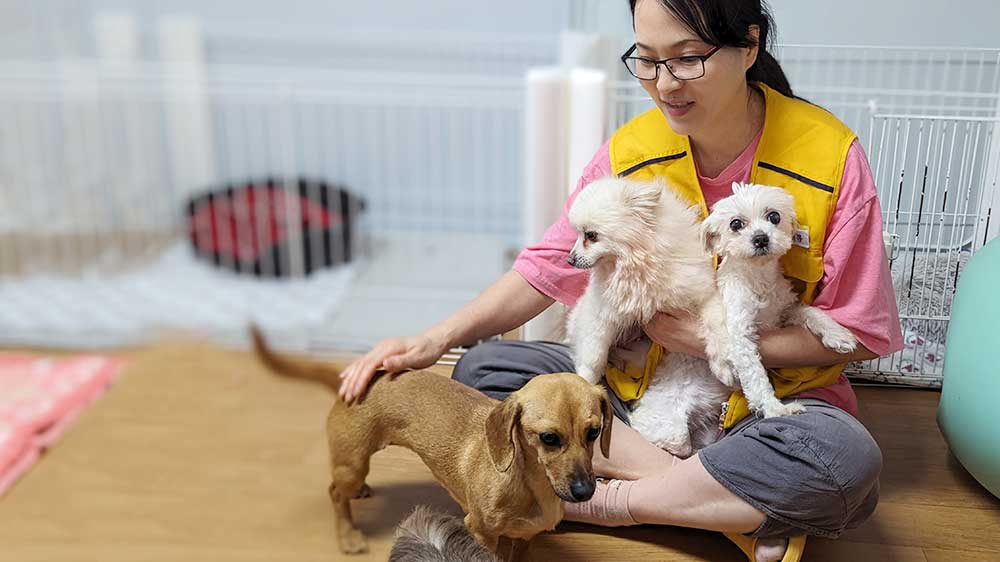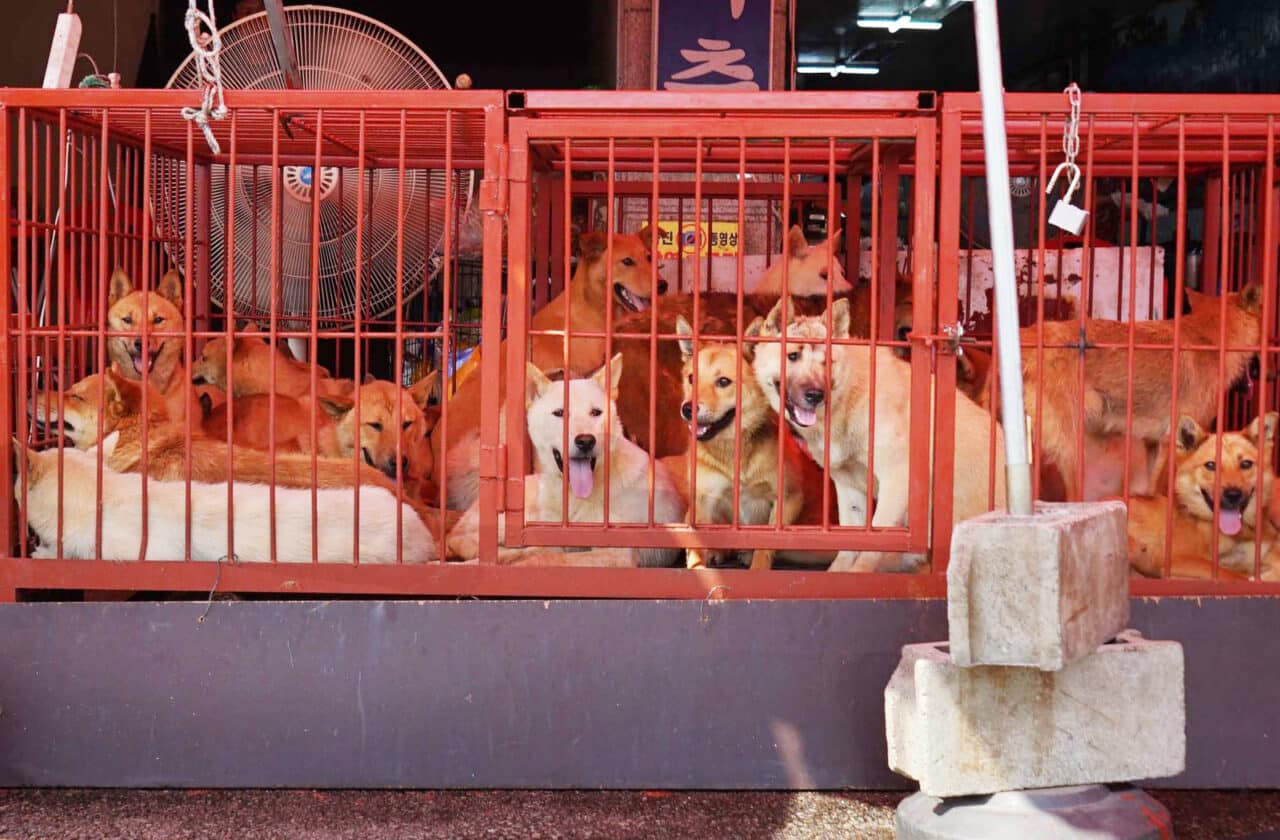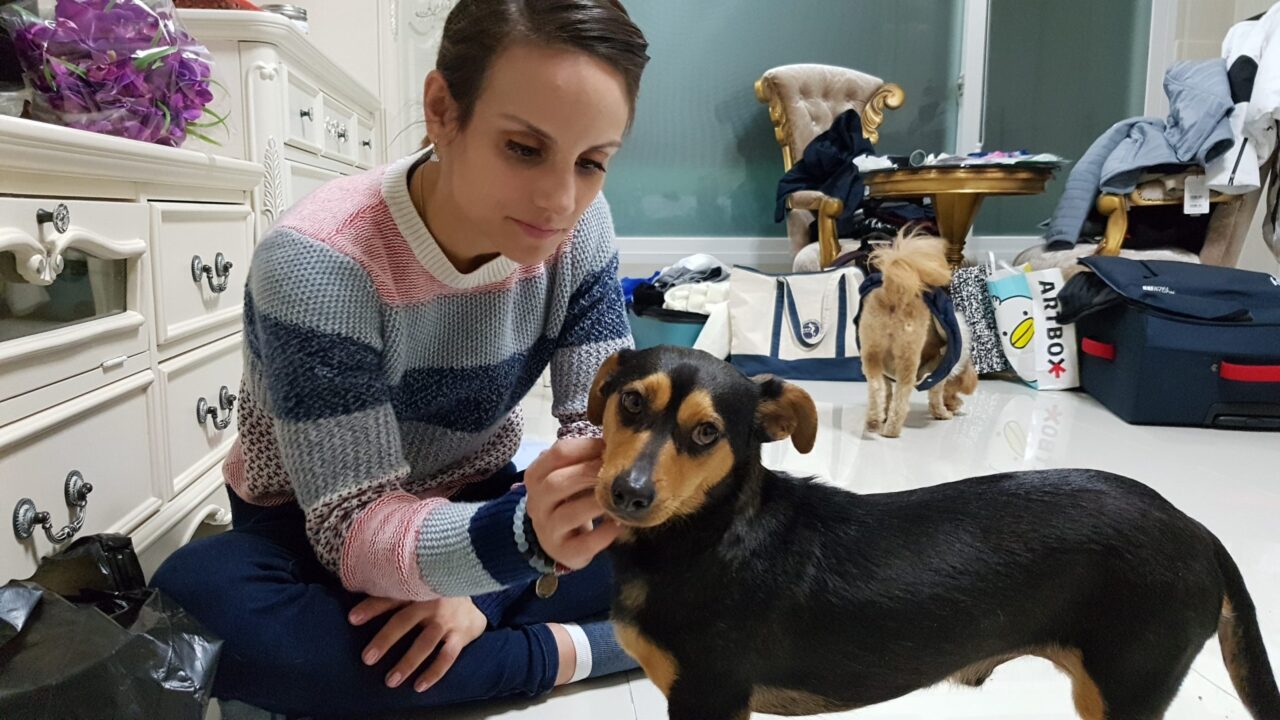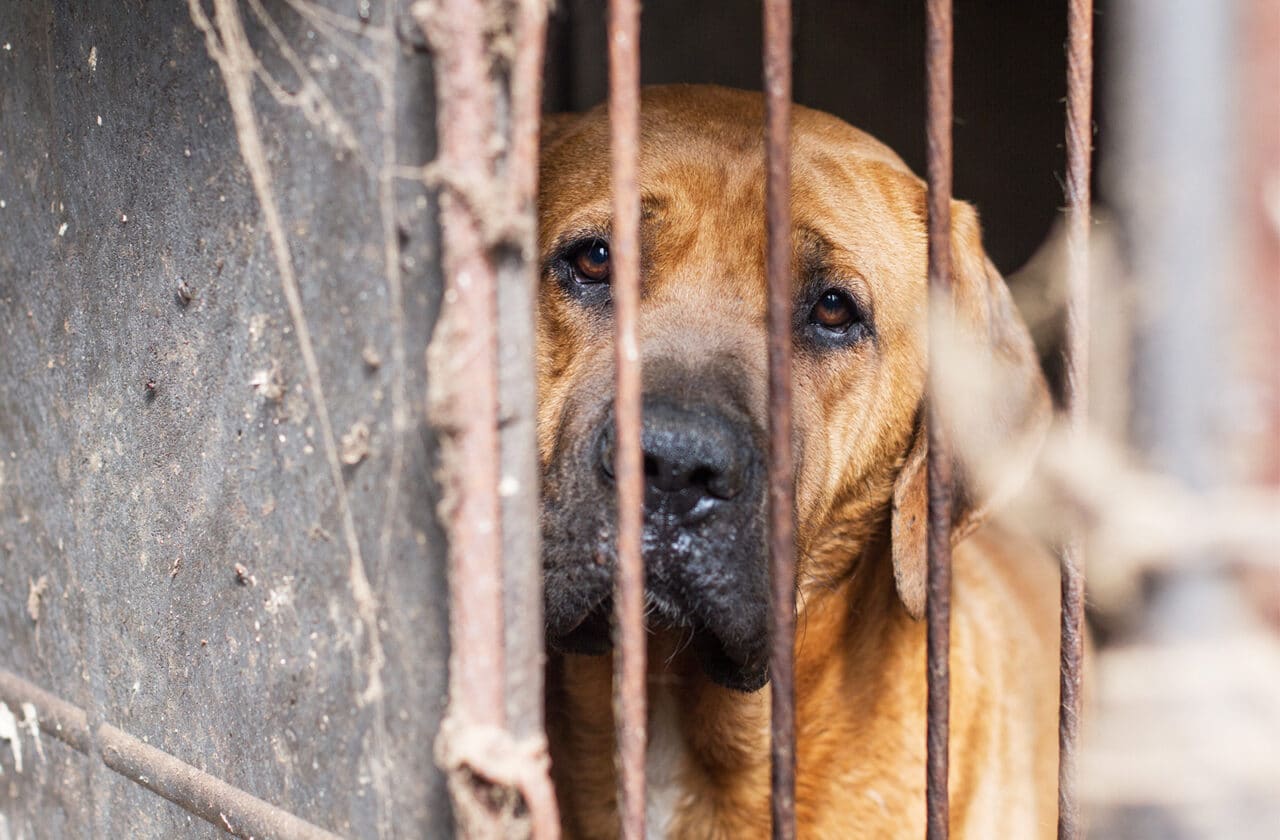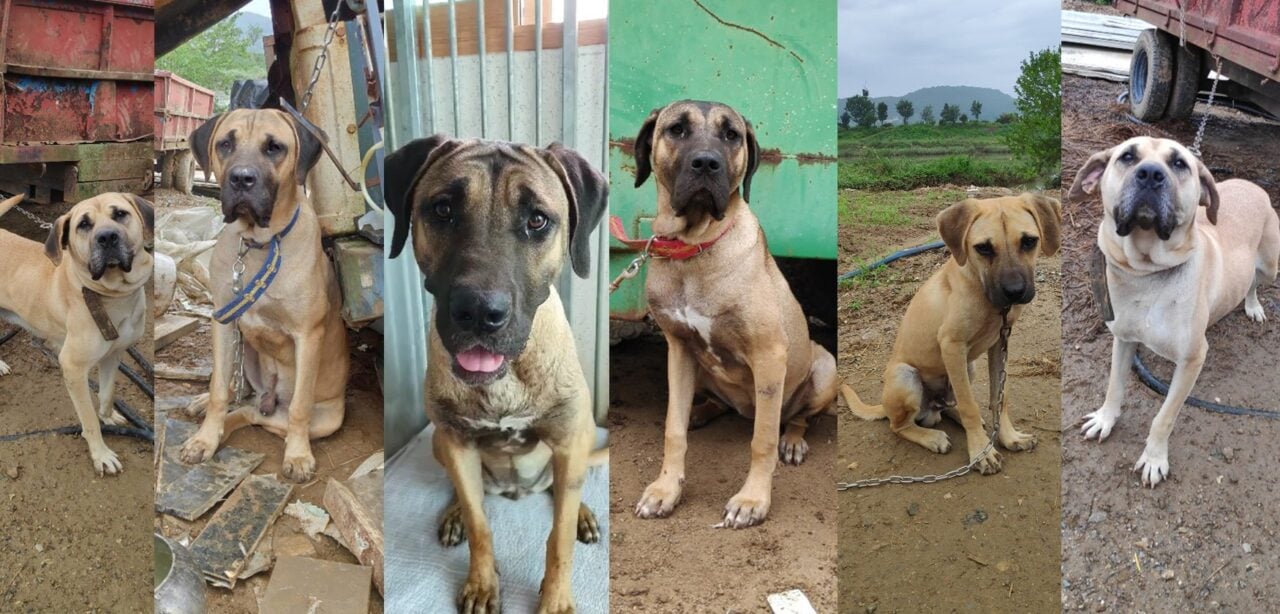Dog Meat Consumption in Korea
Guest article by Greg Mount
The consumption of dogs in Korea dates back centuries to poorer times when steady sources of protein were scarce. Over the years, however, Koreans cultivated the belief that dog meat soup has medicinal properties as an antidote to the lethargic effects of summer heat. As a result, the most popular time to eat dog meat soup is during Sambok, the three hottest days of summer. This is when the vast majority of dogs are slaughtered, which puts a cruel spin on the old “dog days of summer” cliche.
Opposition to dog consumption grew in the 20th century, as some started to regard eating dogs as barbaric. In response, the Korean dog meat industry decided to re-brand. The name of the soup was changed from gaejangguk, which literally means “dog meat soup,” to the far less barbaric bosintang, or “stamina soup.” There! All better, right?
In modern-day Korea, there are hundreds of restaurants throughout the country that specialize in serving dog meat soup and thousands with dog meat on the menu. Korean nationalists have gradually become more vocal in their support of the dog meat industry, in part as a reaction to international opposition. Many Koreans resent foreign judgment and consider eating dogs as integral to their cultural identity.
Dogs = Pets + Food
While most cultures (particularly Western culture) view dogs exclusively as companion animals, Korean culture differentiates between dogs kept as pets and dogs raised for meat. Nureongi, commonly referred to as “meat dogs,” are the breed most often raised for meat in Korea. It is generally accepted in Korean culture that the nureongi breed is livestock and not suitable for use as companion animals. We highly doubt that these wonderful creatures share this opinion.
Many other dog breeds, however, are also raised for meat in Korea. The Korean Jindo, for example, is a breed of hunting dog indigenous to Korea. In 1962, the South Korean government designated the breed as Korean National Treasure #53. This dog is famous for its fierce loyalty, intelligence, and huge heart. It is also used for meat. The irony of eating a national treasure serves to illustrate Korea’s complex relationship with “man’s best friend.”
Pets have become increasingly popular in Korea, with dogs living as companions in over 1 in 5 households. A double standard exists in Korea, where some dogs live in comfort with a loving family, while others suffer in agony to feed Korea’s insatiable appetite for “stamina soup.”
Culture of Denial and Cruelty
The legality of the Korean dog meat industry is a political gray area. While banned by the government for decades, the consumption of dog meat is tolerated and, in some circles, encouraged. Korea’s conservative government is unlikely to outlaw the dog meat industry, as this would be viewed as bowing to Western pressure and create negative repercussions among their base of supporters.
Attempts to regulate the industry have been rejected by both animal advocates and the dog meat industry. As a result, the industry forges on completely unregulated and largely ignored.
Many in Korea’s political elite try to hide the problem or simply deny that the dog meat industry exists. In advance of the 1988 Seoul Olympics, the city banned dog meat restaurants to avoid negative international scrutiny. In 2014, Kim Jin-sun, chief organizer of the 2018 Olympic Games in Korea, was quoted as saying, “… there is no practice of eating dogs in Korea.”
The evidence indicates, however, that dogs often suffer incredible torture at the hands of the unregulated dog meat industry in Korea. It is not our mandate to provide graphic examples of animal cruelty, as there are countless other sources that clearly demonstrate the inhumane treatment of dogs at all levels of the Korean dog meat industry.
Hope for Korean Dogs
Help is on the way. There is a growing grassroots movement of devoted animal rights activists in Korea lobbying diligently against the dog meat industry. The vast generation gap in Korea marks the front line between older traditionalists and young progressives, with pet-loving youth unwilling to tolerate the cruelty that their parents ignored.

The 2018 Korean Olympics provides an excellent platform to raise awareness, as Korean political and business interests brace for international scrutiny. The Korean government is being pressured into action through demonstrations, social media, petitions, and documentary footage of undeniable acts of cruelty. The story is getting attention, pressure is building, and the time is right for a change.
Dog meat soup photo by Rhett Sutphin.
Subscribe for Updates
Get our dogs in your inbox once a month, along with our latest news and events. We never send spam, and you can opt out at any time.
